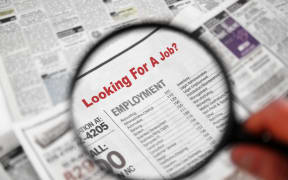Workers are doing it tough trying to meet rising costs of living on their pay, and bad workplace culture is costing our society, a union says.

Photo: RNZ / Rebekah Parsons-King
Almost 900 people responded to the Council of Trade Unions annual Together survey, carried out on 3 to 5 January. It showed bullying was a problem for almost half of respondents in 2019, and 56 percent struggled to pay for basic necessities like rent, power and petrol.
Almost 60 percent said they ewre not paid fairly for the work they did, nearly 50 percent said their workload got worse in 2019, and 31 percent said their hours of work were worse.
It showed bad workplace culture was causing problems for our society, CTU president Richard Wagstaff said.
"Good work creates a sense of purpose, a sense of confidence, of self-worth, and bad work can do the opposite, and destroy people's confidence and wellbeing and sense of belonging.
"And bullying is really at the heart of bad work. It's bad for their mental health, it's corrosive, it's bad for their stress and for workplace productivity. It's a major issue, and one that we need to address urgently."
The stresses caused by workplace bullying and unfair workload flowed on from workers to families, and communities, he said.
In New Zealand the issue was exacerbated by old-fashioned 'command and control' attitudes toward workers which were no longer acceptable, he said, and workers now expect to be treated with respect.
"We're also very concerned about the number of people who don't feel able to report health and safety issues to their managers. We've had one in five people report that they don't feel able to raise this issue. Safety at work is such a fundamental right, that figure should be zero."
While there were major problems, there were some signs of improvement, Wagstaff said. The number of workers reporting their income us keeping up with the costs of living has slightly increased.
Only 2 percent of people who responded to the previous survey believed their income was keeping pace with their cost of living better during 2018 than before. But in the latest survey, that number had risen to 5 percent, who saw a better balance of income to costs in 2019.
"Official statistics are showing better wage rises than we've seen in a decade, and we have a higher minimum wage," Wagstaff said.
"Compared to a year ago, people are certainly in a better mood than a year ago, but there's a long way to go before people can get their head clearly above water because a lot of people are struggling out there despite the fact that they're working hard.
"Low wages and high rents are a bad mix, and that's what a lot of working people are caught in the middle of."
The union believes the struggle to get fairer working conditions is an uphill battle in a market where unions powers are undermined, and workers have little strength to negotiate their contracts and conditions.
Only about 20 percent of workers were members of unions, Wagstaff said, and a political fix was needed for this imbalance.
"They're really having to take what they're given because we don't have a proper system of collective bargaining, or fair pay agreements. And until we do we're not going to get a sense of fairness at work."






